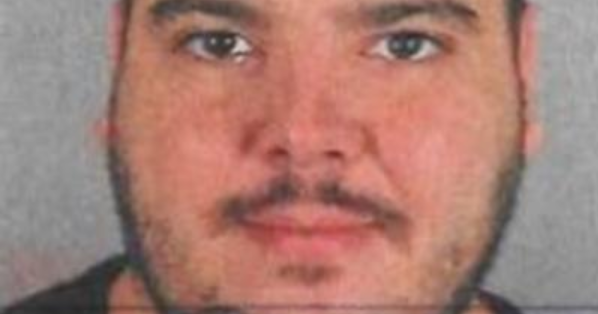In a significant ruling, a Dutch court has seized $112 million from one of Europe’s most infamous drug lords, Jos Leijdekkers, known as “Bolle Jos.” The court’s decision comes as officials believe Leijdekkers is hiding in Sierra Leone, where he is suspected of collaborating with local political figures. This landmark case highlights the legal efforts to combat organized crime and the complexities associated with asset recovery from international fugitives.
| Article Subheadings |
|---|
| 1) The Court’s Ruling and Details |
| 2) Leijdekkers’s Criminal Activities |
| 3) Allegations of Connections with Sierra Leone’s Elite |
| 4) Implications for International Law Enforcement |
| 5) Ongoing Investigations and Future Actions |
The Court’s Ruling and Details
On Monday, a Rotterdam court delivered a verdict that has far-reaching implications for organized crime in Europe. The $112 million in seized assets is tied to Jos Leijdekkers, who is currently evading law enforcement in Sierra Leone. The court’s decision was based on extensive evidence demonstrating Leijdekkers’s illegal profits accrued through cocaine trafficking and gold purchases. The judgment mandated that Leijdekkers pay over 96 million euros to the Dutch state, affirming the court’s stance on the illegitimacy of his wealth. Prosecutors had initially requested a seizure amounting to a staggering $250 million; however, the court determined their legal foundations for such an amount were too broad and consequently reduced the sum.
Leijdekkers’s Criminal Activities
The criminal activities associated with Jos Leijdekkers have sparked widespread media attention and concern within law enforcement circles. Reports indicate that he earned approximately 114 million euros from 14 cocaine shipments over a mere ten-month period, highlighting the substantial scale of his narcotics operations. Additionally, intercepted communications revealed that he spent 47 million euros on gold procurement, purchasing 975 kilograms within a short time frame. The gravity of his criminal undertakings is underscored by a previous court’s decision to sentence him to 24 years in prison for orchestrating murder and managing elaborate cocaine shipments.
Allegations of Connections with Sierra Leone’s Elite
The spotlight has recently turned to the political elite in Sierra Leone amid allegations that Jos Leijdekkers has found refuge within its ranks. Dutch authorities have stated their conviction that he is hiding in Sierra Leone, bolstered by social media posts from the first lady, Fatima Bio, which appear to show images of Leijdekkers attending a religious service alongside President Julius Maada Bio. These revelations have led to speculation that Leijdekkers may have forged connections to influential political figures, including reports alleging a close relationship with the president’s daughter, Agnes Bio. Such links raise critical questions about the extent of political complicity in transnational crime.
Implications for International Law Enforcement
The recent court ruling and the ongoing situation in Sierra Leone highlight the challenges faced by international law enforcement agencies like Europol. Leijdekkers remains on Europol’s most-wanted list, with a reward of over $225,000 for information leading to his capture. The case exemplifies the complexities of cross-border criminal investigations, particularly when potential allies in local governments become obstacles. Legal experts underscore the necessity of international cooperation to effectively combat organized crime and mitigate its pervasive influence. The collaboration among nations is crucial for apprehending fugitives who exploit geographical and legal jurisdictions to evade justice.
Ongoing Investigations and Future Actions
The Dutch authorities have expressed a strong commitment to tracking down Jos Leijdekkers, with ongoing investigations aimed at uncovering further facts about his whereabouts and activities. The prosecutor’s office has reiterated that the fugitive’s return to the Netherlands is of “the highest priority,” emphasizing the importance of justice in upholding the rule of law. As public attention grows, law enforcement agencies continue to gather intelligence and build a case for extradition, should the complexities of international jurisdiction allow. Meanwhile, their efforts face additional scrutiny due to the political climate in Sierra Leone and the possible involvement of local officials in shielding Leijdekkers from capture.
| No. | Key Points |
|---|---|
| 1 | A Dutch court seized $112 million from Jos Leijdekkers due to his involvement in drug trafficking. |
| 2 | Leijdekkers earned more than 114 million euros from cocaine shipments. |
| 3 | Allegations suggest Leijdekkers has ties to the political elite in Sierra Leone. |
| 4 | Europol has listed Leijdekkers as a most-wanted fugitive with a substantial reward for information regarding his capture. |
| 5 | Dutch authorities aim to extradite Leijdekkers to face charges in the Netherlands. |
Summary
The seizure of $112 million from Jos Leijdekkers signifies a robust response from Dutch authorities to organized crime’s impact on society. As the investigation unfolds, the connection to Sierra Leone’s political elite complicates the pursuit of justice. International law enforcement faces immediate challenges, yet the commitment to apprehending Leijdekkers reflects a broader determination to uphold legal integrity. This case serves as a reminder of the ongoing fight against transnational crime and the complexities that such cases entail.
Frequently Asked Questions
Question: Who is Jos Leijdekkers?
Jos Leijdekkers, also known as “Bolle Jos,” is a Dutch drug lord accused of significant involvement in cocaine trafficking and other criminal activities.
Question: What was the court’s ruling regarding Leijdekkers?
A Dutch court ruled to seize $112 million in illegal gains from Leijdekkers, reflecting his earnings from drug trafficking activities.
Question: Why is Leijdekkers significant in this case?
Leijdekkers is significant due to his extensive criminal network and alleged connections to political figures in Sierra Leone, complicating international efforts to apprehend him.


